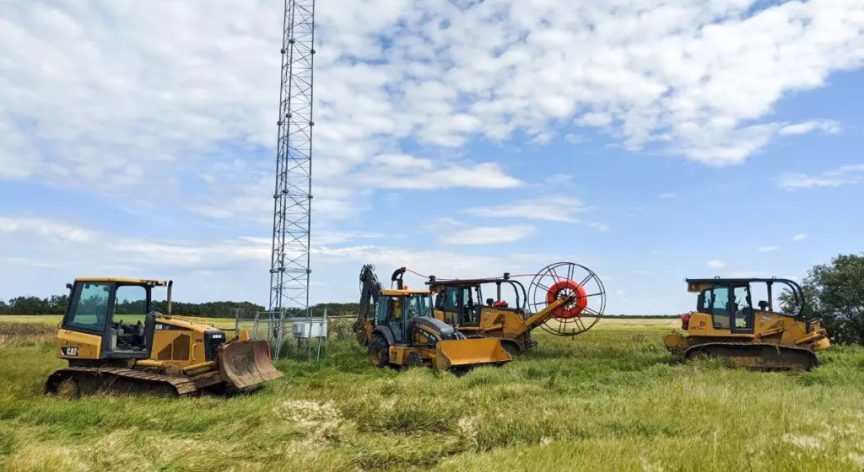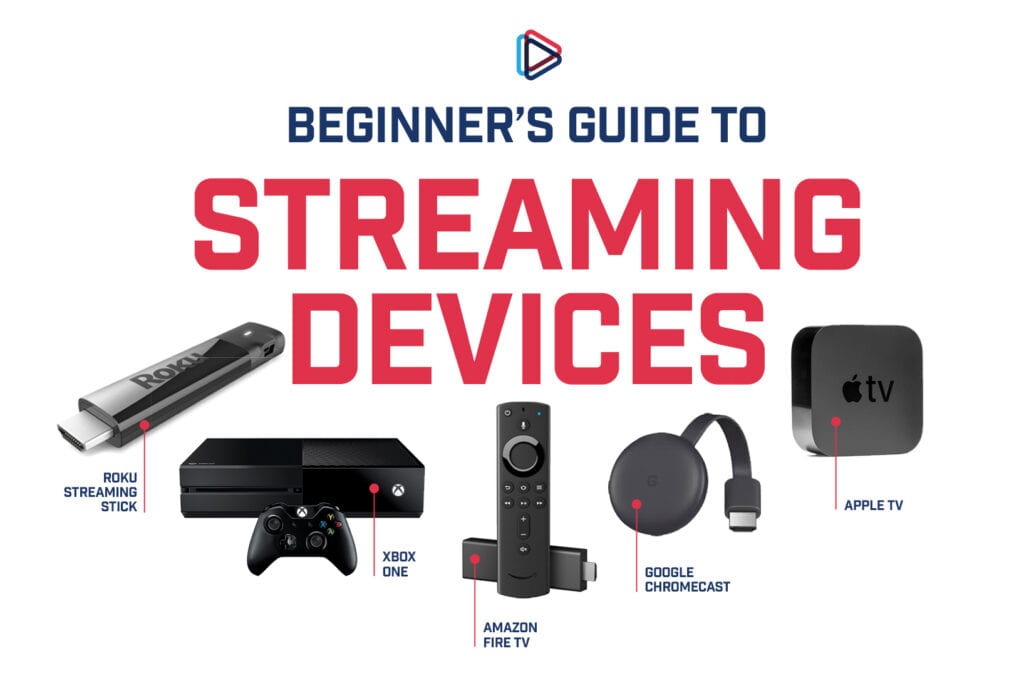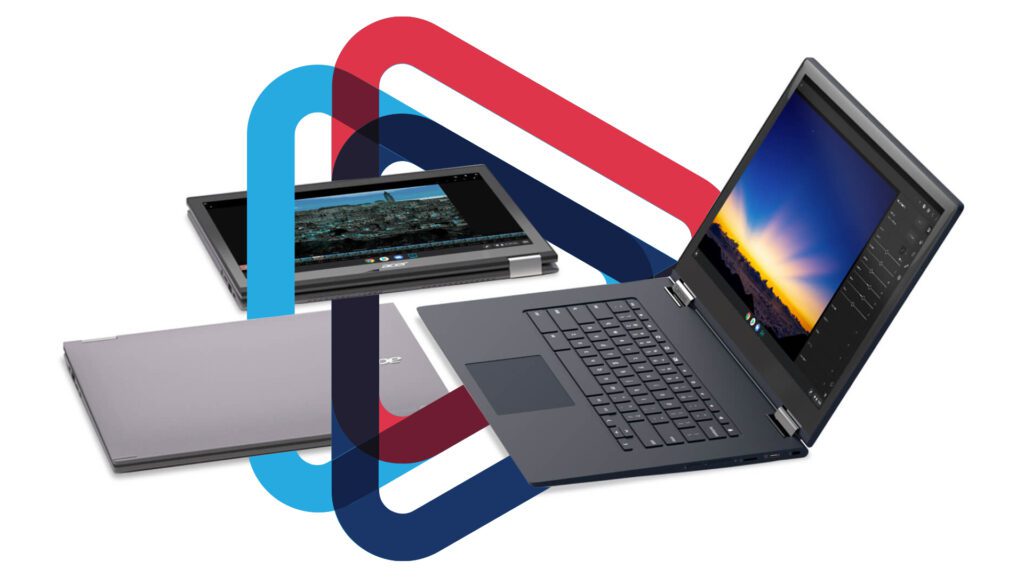
Home Internet Plan Comparison: Finding the Best Home Internet Service for Rural Alberta
Table of Contents
Trying to choose the right internet plan for your rural Alberta home can be a challenge, to say the least. “Rural” can mean anything from a bustling town of 30,000 to a quaint hamlet with a handful of houses – and that distinction makes a world of difference for your internet service options.
To add to this, the stakes are high: the wrong choice can mean slow, laggy internet and an unreliable connection. We get it– navigating through the maze of internet choices in rural Alberta can be overwhelming and confusing.
Don’t worry – If you have chosen the laid-back countryside lifestyle, we want to reassure you that your rural internet speed doesn’t have to be laid-back, too. We’ve saved you hours of research by creating this handy guide with everything you need to know on home internet options in rural Alberta.
We hope that by the end of this guide, you’ll be able to better understand your internet needs and what is available to you, so you can make the best decision when scouting for internet plans.
If you want to skip straight to our residential internet plans, you can review them here.
Let’s get into it!

Understanding Internet Usage in Rural Alberta
First, let’s discuss usage: What is it?
Usage is all the data that comes to and is sent out from your device. Think of data like a highway road and your devices like cars on that highway. If there are several cars on the highway during rush hour (in other words, lots of devices used at once) things can get slow!
Some entertainment activities – streaming in 4K, high-quality video games – need more data. Think of these activities like a sports car, designed for a smooth road for the best performance. If you drive that car on a bumpy, gravel road, you won’t get the best performance. This is what it can be like to use high-data activities on a basic plan – sometimes, even if it’s just one car, it requires a better road.
Now that we’ve explained what usage is, how do you know how much you need? We’ve got you covered. Here is an idea of what the average rural Albertan household usage needs are:
Some examples of varied data usage (collected from blog)
Family of 3
Average Use
600 GB
Per Month
Family of 4
Average Use
400-800 GB
Per Month
Adult couple
Light Use
300-400 GB
Per Month
Individual
Heavy Use
400 GB
Per Month
It’s important to have an idea of your usage, but that’s not the only consideration: your speeds are another important factor when selecting a plan.
Download vs. Upload Speeds: What’s the difference?
Before we get into your speed requirements, let’s define the difference between downloading and uploading. Downloading is when you bring content to your device from the internet, and uploading is when you send content out into the internet.
For example, let’s say you started watching a great new show on your favourite streaming platform. It’s so great that you want to share it with people on social media and recommend they watch it, too.
When you watch shows, you are downloading them – the show is coming to you. When you share something on social media, you are uploading – you are sending something out into the internet.
Both download and upload speeds are important when considering an internet plan, but not all areas get the same speeds. Here’s an illustration showing the median download/upload speeds across the Alberta zones we service.

The speeds that are listed on your internet plan may not end up being the speeds you experience due to a number of controllable factors. Let’s get into that next.
Factors that impact internet speed
Before you sign up for a lightning-fast internet plan, you want to make sure that nothing else is slowing you down.
If you’re wondering what speeds you’re currently getting, check out our Internet Speed Test. Here are a few factors (Government of Canada, 2023) outside of your plan that could be slowing down your internet.
- Is your device on the older side, struggling to keep up with modern apps? Older devices like computers are likely not equipped to deal with the complexity of high-definition streaming or gaming.
- Could it be your router? If your router is too far from your devices, the poor signal might be slowing you down.
- Are your cables less than ideal? Old or low-quality cables can mean a slower network speed, no matter how amazing your internet plan is.
Getting the most of your internet speed is just one piece of the puzzle – Alberta has some unique challenges when it comes to access for Albertans. Let’s get into why high-speed internet isn’t accessible for all Albertans (yet!).
Connectivity Challenges in Rural Alberta
Nearly half a million rural, remote Albertans don’t have access to the internet speeds they need to learn and work at home (GOA, 2022). Alberta is famous for our beautiful rocky mountains, but rocky terrain and mountains can mean challenges for laying cables or building towers.
In addition, Alberta’s wild weather swings can damage towers and internet infrastructure so they require a lot of maintenance in hard-to-reach areas. Most providers don’t see the revenue generated as being worth the effort to connect Albertans.
In 2022, the Government of Alberta announced a strategy to achieve connectivity for all Albertans by 2027 to bridge this gap. We are happy to work with the government on achieving this goal. We’ll get more into this later in this guide. For now, let’s hone in on the different types of internet options available for rural Albertans.

Types of Internet Services in Alberta
Now that we’re up to speed on usage, speed and unique challenges for rural Albertans, it’s time to get into the different types of internet services in Alberta. Each service type offers different pros and cons, so it’s important to determine the best fit for your needs. Here, we’ve laid out the pros and cons of DSL, Cable, Fiber, and Satellite services.
DSL (Digital Subscriber Line)
DSL is a widely accessible option that uses existing telephone lines to provide internet connectivity. It delivers decent download speeds and is suitable for basic web browsing and email usage. However, DSL upload speeds can be slower, impacting video conferencing and large file sharing.

Cable Internet
Cable internet uses cable TV lines to offer high-speed connectivity. Cable offers faster speeds than DSL, making it the better option for streaming, online gaming, and remote work. One of the main drawbacks to cable? Heavy network traffic can lead to slower speeds during peak hours.

Satellite Internet
Satellite internet has been the most popular rural Alberta option in previous years. It’s been a lifeline for remote and isolated areas of Alberta where other options might not reach. It works by transmitting signals to and from satellites orbiting Earth. However, since signals have to travel to space and back, satellite internet can mean slower speeds than options like Fiber or GigAir.

Fiber Optic Internet
Fiber-optic internet, also known as “Fiber,” is the new gold standard of internet. Fiber works by sending light signals through thin glass fibers. This means you get internet speeds that are (nearly) the speed of light! Fiber is perfect for data-intensive activities like streaming 4K videos and large file transfers.

GigAir Internet
GigAir internet uses fiber optic technology to offer fiber speeds with easier install. By connecting fiber optic internet to a tower, the signal is broadcast to several “nodes” placed around the community. These nodes are tissue-box sized radios that connect in a mesh network, kind of like a spiderweb of signal.
The benefit of this setup is that if one node goes down or experiences a failure, the network will find another path through another node, ensuring consistent, seamless internet. Installation is fast and easy, giving you a fiber optic experience with no need to lay miles of fiber optic cable.

Availability Across Alberta’s Regions
Now that you understand the differences between DSL, Cable, Fiber, and Satellite, you are well on your way to making an informed choice. Now comes the hardest part: selecting an Internet Service Provider (ISP). To begin, let’s compare some of the top ISPs in rural Alberta and their plans.
Top Internet Service Providers in Alberta

If you are facing a tough decision about whether or not to switch to a different plan, we’ll get into some key considerations next.

Key Considerations When Choosing an ISP in Alberta
Whether you’re new to an area and choosing a plan, or you have an internet plan but you’re considering switching to a new ISP, here are a few things you should consider.
Reliability and speed for your region
Depending on your location, your service options and top speeds may be reduced. Make sure that you’ve reviewed the availability maps and average speeds from the ISPs so you know what you’re eligible for.
Pricing and other hidden charges
The key to selecting the right plan is finding the usage that works for your budget while providing you with the service you need. There’s no need to pay for more than you need, but if you get a plan that doesn’t perform the way you need it to, you’ll be disappointed.
Be on the lookout for hidden fees when dealing with internet service providers. We all know the horrible, sinking feeling of being tricked by fine print and being on the hook for an unexpected charge.
Make sure to read the fine print carefully. Look for sneaky costs like “activation fee”, “hardware fee”, or “overage fee” that your provider isn’t open about up-front. Another sneaky one is “term pricing” – where the monthly cost you’re signing up for isn’t the cost you’ll pay long-term, only for a set amount of months.
Customer service reputation
Investigate reviews for the ISP, particularly around customer service. The last thing you want in an outage is an agent who brushes you off, or worse: doesn’t even answer the phone. Here’s what to look for when selecting an ISP that offers excellent customer service:
- Proactive Communication: Does the ISP notify customers if there’s a known issue affecting the area, even before they reach out?
- Detailed Guidance: Instead of generic troubleshooting, does the support team provide steps that address the specific scenarios?
- Educative Support: Does the ISP take a moment to educate customers, making them more informed for future instances?
- Empathy: Does the ISP listen and understand the frustrations of customers, especially when critical business operations are at stake? Also, do they make resolving the problem their top priority?
When you’re facing tech troubles, it’s crucial to know the quality of customer support you can expect. Research the responsiveness and efficacy of the service team in advance, because when the chips are down, you’ll want to lean on a team that truly understands and prioritizes your needs.
Data caps
Think of data like water in a well. You have a limited amount of water for activities like drinking, cooking, and watering. Once you’ve used up all the water in your well, you either have to wait until the next rainfall (next billing cycle) or pay extra to get more water brought in (extra data).
In rural areas where internet infrastructure may be limited, data caps can be particularly important to make sure networks don’t get congested. Network capacity may be limited, so internet service providers hold data caps to prevent overwhelming the system!
Extra data can become quite pricey, so you want to make sure you’re selecting the right plan for your usage needs. Understand the additional data fees from your ISP in case you happen to go over your cap.
Now that you’ve selected your perfect plan, you want to make sure you’re getting the best deal. Even saving just $10 per month can add up to hundreds or thousands of dollars in savings over the life of your plan!

Getting the Best Deal On Your Internet Plans
Did you know you can use your negotiating skills to get the best deal on your internet plan? When it comes to talking to ISPs about your plan rate, a little negotiating, bundling, and kindness can go a long way!
Negotiating the best deal
If you’re a new customer, tell the service provider that you’re thinking of switching to their service. They’ll often begin with their new customer promotions – but you can further ask them to waive fees or bring the monthly cost down. If they aren’t budging, you have leverage: say you’ll sign a term so they have your loyalty signed into a contract.
Bundle Phone and Internet
Not only does bundling your phone and internet streamline your billing, but it can also be a lot easier on your wallet. If you’re paying for both anyways, why not keep them together and save?
Plus, with both services with the same provider, you’ll have the convenience of managing your tech life from a single hub.
Hello Streaming Platforms, Goodbye Cable
Now, let’s talk about cable TV (or ditching it for good). If you have a bundled TV package, you could be getting tricked by your provider–we go into that more in this blog post, but we’ll move on for now.
In rural areas, traditional TV signals can often be patchy. Thankfully, streaming TV services offer a solution. Instead of opening your wallet for a cable TV bill every month, consider embracing streaming platforms.
Internet-based streaming means tons of shows and movies on-demand on a smoother and more reliable connection. Say goodbye to pixelated screens and hello to buffer-free binge-watching.
Another bonus? By ditching your cable bill and embracing streaming, you’re in for some serious savings – as of 2023, the average cable TV bill in Alberta is $35.00/month!
Now that we’ve helped you determine your needs and get the best deal on your amazing new internet plan, we want to switch gears a bit and talk about some of the challenges of internet when it comes to rural Alberta. But don’t worry – this story has a promising future!

Alberta’s Broadband Initiative for Rural Areas
Eliminating the digital divide
Here’s a shocking statistic: nearly half a million Albertans don’t have access to internet speeds they need to work and learn from home. This adds up to 67% of rural Albertans and 80% of Indigenous communities who don’t have access to reliable high-speed internet. This divide puts these affected individuals at an economic disadvantage.
But there’s good news. On March 9, 2022, the Canadian federal government and Alberta provincial government announced a partnership to fix this.
Under this agreement, 200,000 households across Alberta will be connected thanks to an investment of up to $780 million from both governments. In addition, the Government of Alberta has set a goal to provide every single household in Alberta access to high-speed internet by 2027.
We are proud to partner with the Government of Alberta to achieve this goal of eliminating the digital divide. To date, we’ve invested $30 million ourselves in bringing high-speed internet to rural Alberta. Ensuring that every Albertan has access to reliable, high-speed internet will strengthen our economy, create more jobs, help educate our youth, and help build a more connected Alberta.
The Future of Rural High-Speed Internet
As we work to connect all Albertans, we are excited to expand our GigAir high-speed network in 2023 and 2024. This network is revolutionizing rural high-speed internet by providing fiber optic speeds with a quick, easy, and cost-efficient installation process. Learn more about our GigAir gigabit network here.
Conclusion
You’ve made it to the end of our comprehensive guide!
Hopefully, by this point, you feel informed and prepared to make the decision on your rural Alberta home internet. If you’re ready to start browsing plans, you can check out our residential internet plans.
If you are still looking for some guidance and would like to speak to us directly, feel free to contact us. We are happy to answer any questions you have and go through your options for your unique circumstances.
Happy surfing, streaming, and gaming!

“By investing in transit fiber construction within our network of over 500 towers, we are adding high-speed capacity for future generations,” says Jerico VanBrabant, CEO of MCSnet. “We understand the need to be digitally connected to the rest of the world, especially since we are a local company based in rural Alberta. ”
FAQs
For most households with light internet usage (websurfing, emails, streaming one account at a time) speeds of 25 Mbps are adequate. According to the Canadian government, the minimum qualifications for a “good internet speed” are 50 Mbps downloads and 10 Mbps uploads. If there are 4+ people in a household all streaming and/or gaming speeds of 100+ Mbps are preferred.
The best place to install a Wi-Fi router in your home is in a central location and an open area away from electronics.
In 2022, the average cost of the internet in Canada is now $95 per month. Source
Find your speed here and the average speed here.
Average internet usages in Alberta can be found here and here.
Resources
Government of Canada (2022). What you should know about internet speeds.
MovingWaldo. (June 2023). Alberta Utility Bills: How Much Does It Cost for Electricity, Water, Gas, Internet, Cable & Home Phones in 2023?





